Switch-ing On Indie Support For Nintendo's New Platform
We talk to indie developers about bringing their games to Nintendo's Switch and how Nintendo has helped that process along.
This article first appeared on USgamer, a partner publication of VG247. Some content, such as this article, has been migrated to VG247 for posterity after USgamer's closure - but it has not been edited or further vetted by the VG247 team.
Nintendo needs to get serious about independent developers. As a hardware package, the Nintendo Switch is a big improvement over the Wii U. It is well-designed, feels like a premium product, and has a clear selling point. There are problems with the overall package, but they're not something Nintendo can't overcome.
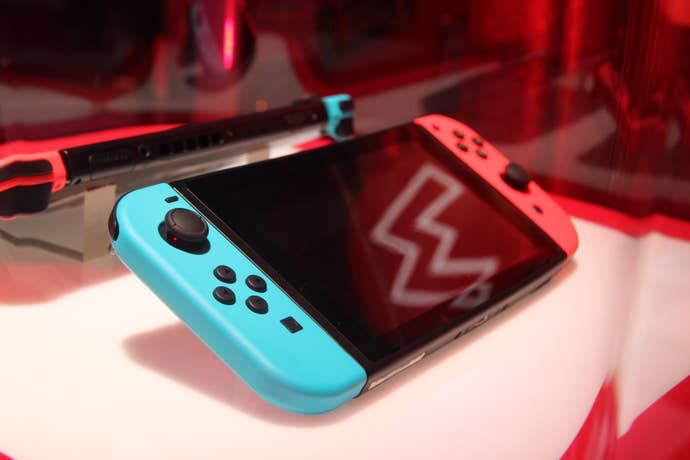
Nintendo's biggest issue remains that of third-party support. Support from Western developers and publishers has long been a problem for Nintendo and while there's hope for the Switch given its list of development partners, it's still not the wide support the platform could use. Japanese developers are largely on board, but they're not enough on their own.
Where Nintendo can find a solution is in the indie community. While not every indie game is a winner, supporting a thriving indie community on your platform means your platform is represented when there is another Minecraft, Hotline Miami, or Stardew Valley.
Over the past few years, Sony has found a good deal of success in talking to independent developers and trying to bring them into the PlayStation family. There have been a number of titles on PlayStation 4, PlayStation Vita, and PlayStation because of Sony's efforts. Microsoft also retains its ID@Xbox program, which stumbles a bit because of certain rules requiring exclusivity. Nintendo hasn't been completely lax in its effort, but there's room to do more here.
We spoke to a few developers to determine how well the company has been connecting indie developers with its all-new platform.
Working With The Switch and Nintendo
During Nintendo's Corporate Management Policy Briefing, Nintendo revealed that it started talking to third-party developers last summer. Some of the developers we spoke to have been in contact with Nintendo for some time, if not that early.
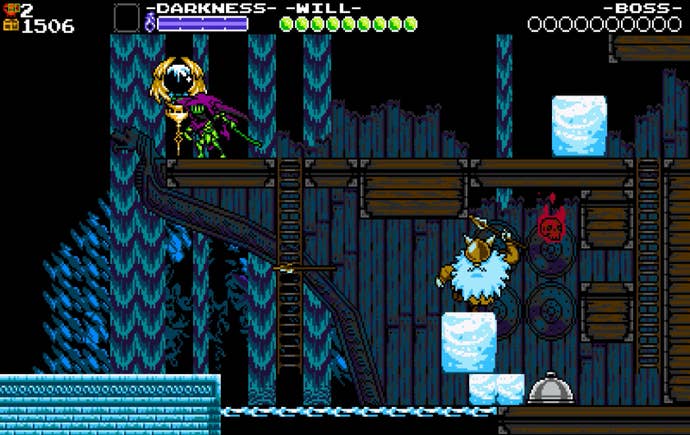
"We've been in talks with Nintendo for a while, but we didn't hear the information about two controllers in the device until quite recently!" Shovel Knight developer Yacht Club Games told USgamer. Shovel Knight has found a strong home on Nintendo's Wii U and 3DS and Yacht Club published Inti-Creates' Azure Striker Gunvolt in North America with the physical Striker Pack. It makes sense for Nintendo to reach out to them as a proven partner.
Yacht Club says that Nintendo has been very responsive in back-and-forth conversations about the system's capabilities. The developer also notes that porting the recently-announced Shovel Knight: Treasure Trove to the platform has been a simple matter.
"Porting has been really easy. This is one of the best experiences we've had with new Nintendo hardware," explains Yacht Club Games. "We've experimented with HD Rumble. It's really cool! But we're not sure yet if it will fit in with Shovel Knight's gameplay."
Outside of the sphere of developers that Nintendo has worked with before, there's another layer of developer: larger independent developers who have a name, but might not have made that connection on the 3DS or Wii U. Tequila Works is working hard on RiME, a stunning puzzle platformer that's coming this May to PC, PlayStation 4, Xbox One, and Nintendo Switch. The Switch version of RiME is being handled by Tantalus, the studio behind the The Legend of Zelda: Twilight Princess HD, giving Tequila Works an 'in' to the process.
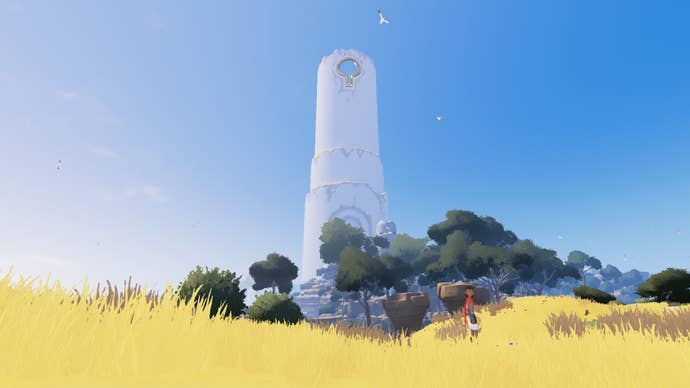
Tequila Works said Nintendo made their acquaintance over Switch development sometime after that summer window mentioned by Miyamoto, with a dev kit popping up in late fall of 2016.
"Let see, because time flies when you are finishing a game...since early fall of last year, roughly," Tequila Works replies when I ask about when they received a Switch dev kit. "Before that Tantalus, who worked on the Wii U version of Legend of Zelda: Twilight Princess, and who is helping us with the Switch version, emulated the specs on other hardware so development could begin."
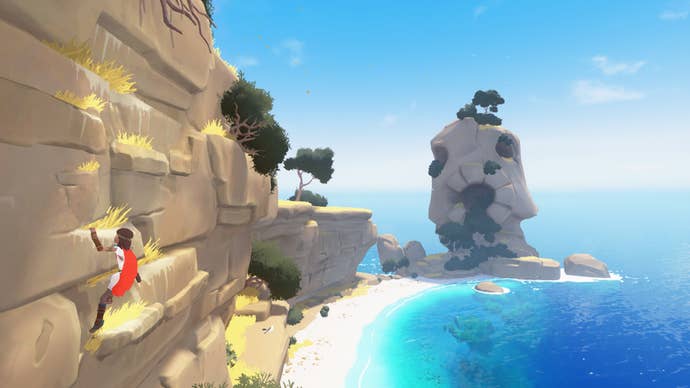
RiME is built in Unreal Engine 4, which has Switch support already, so bringing the game over has been an easy process. This aligns Miyamoto's statements from the Corporate Management Policy Briefing, where he stated that games built for PCs can be ported to the Switch in around a year. That obviously doesn't account for optimization, but it's a good sign.
"We're using the Unreal 4 engine, which has a lot of great features and middleware support, which Tantalus and we can take advantage of during the process," says Tequila Works about the porting process. "It's been good. We haven't had concerns, but Nintendo has been there for any question or comment we've brought up. It's been an awesome relationship!"
Unlike Yacht Club Games, who are still exploring the concept of using Switch's unique features like HD Rumble, Tequila Works says RiME will have feature parity across all platforms.
"We think [Switch] features are great. However, RiME has been in development for years and will have the same content across all platforms, so we won't be utilizing those Switch features during this project," says Tequila Works.
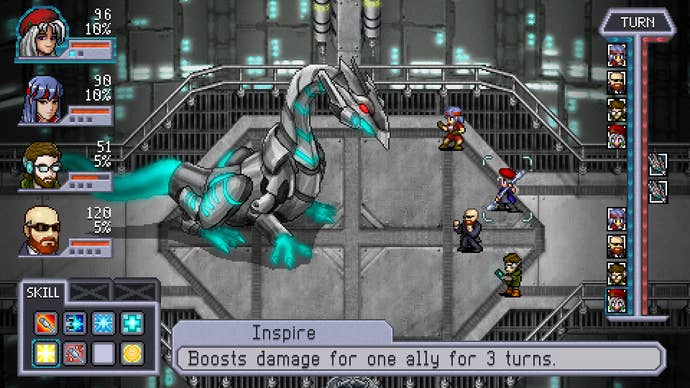
Beyond developers like Tequila Works, there's another layer. Independent developers who are known, but aren't as highly visible as Yacht Club Games or Tequila Works. Zeboyd Games started with its own 2D RPGs for Xbox 360: Breath of Death VII and Cthulhu Saves the World. The two-man studio leveraged that expertise to develop Penny Arcade Adventures: On the Rain-Slick Precipice of Darkness: Episodes 3 and 4 on PC, Linux, Mac, and Xbox 360. Now they're working on Cosmic Star Heroine, another 2D JRPG style game coming to PlayStation 4, PlayStation Vita, PC, and Mac this year.
On Twitter during the Nintendo Switch Presentation, Zeboyd Games' Robert Boyd wondered if Nintendo would reach out to regular indie developers not already in its sphere.
I spoke to the team and they said they still haven't communicated with Nintendo about the matter. Nintendo hasn't contacted them and the team is heads-down in crunch on Cosmic Star Heroine, so they haven't had time to talk to Nintendo.
"We're actually in crunch right now on our current game, Cosmic Star Heroine, so we're planning to reach out again once our current game is done and released on already-announced platforms," Zeboyd Games tells me in its interview. They believe there's room for Nintendo to do better with independent developer outreach.
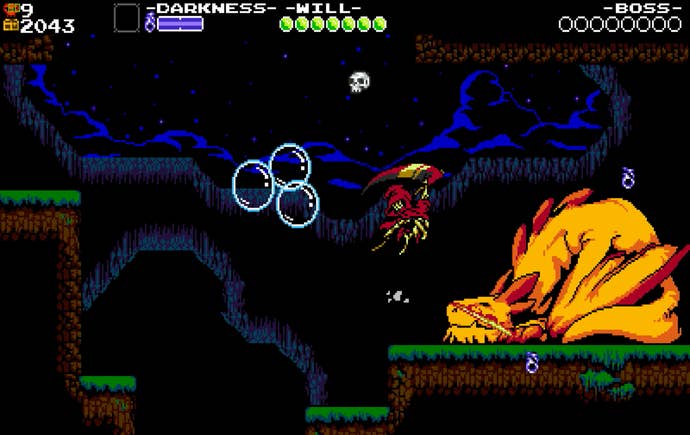
Improving the Indie Connection
"I can think of a few people at Sony who reach out to indies and try to open a dialogue about bringing games to their system, and at least one at Microsoft," Zeboyd Games' Bill Stiernberg tells me. "It's not hard to find someone and at least open a dialogue. Maybe other developers have found this very thing with Nintendo; but I can certainly say in our experience Sony has done a lot for indies that I don't really see with Nintendo yet-- but I'd still like to jump back on getting in touch for a Switch release."
In fact, all of the developers I spoke to think that Nintendo should be reaching out to talented independent developers. More developers working on Switch games means more chances for quality titles on the platform. Like the PlayStation Vita before it, the Switch is aptly placed to be a clearinghouse for indies that usually only release on Steam.
"Definitely!" replies Yacht Club Games when I ask if there's room for Nintendo to improve on indie outreach. "The more quality games Nintendo can bring to their system, the better!
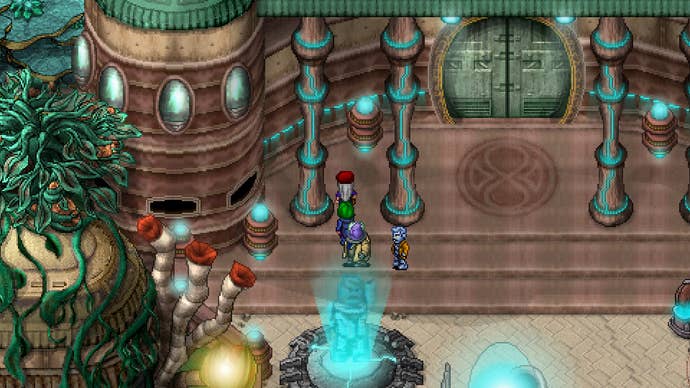
Zeboyd's Steinberg believes indies can be a "valuable asset" to Nintendo, but understands that the company is "focusing on their core strengths" and making sure first-party development is strong.
"The Switch is not geared towards the same market as the PS4/XBO/PC in terms of system architecture, purpose, or in terms of marketing," says Steinberg. "Indies can definitely offer a broad and deep variety of games for the system, even though indie games are hardly system-sellers. But between awesome first party Nintendo releases, Nintendo funded third-party games, and the occasional cool third party release, combined with a strong indie presence, you could have a really sweet home/portable hybrid console. I would love such a thing."
Zeboyd Games would like to see Nintendo beef up its independent developer program with "points of contact for indies that are easily reachable and quick to respond". The studio also believes indies needs a faster way to get Nintendo Switch devkits and someone to help interested developers "get through some of the red tape."

I Believe In You, Nintendo
One thing that's remained consistent across all the developers I spoke to is a belief in Nintendo's prospects with the Switch.
"I'm the target consumer for Switch so I probably can't be fully objective here. I think it is a great concept and we all hope as developers and gamers that it is a huge success. A hybrid approach is very interesting for the ongoing evolution of consoles," adds Tequila Works' spokesperson.
"I think that the system has the potential to sell well enough for Nintendo that it would be considered a success, but it is unlikely to become the market leader-- it won't get big third party AAA ports, so Nintendo needs to focus on its strengths. If they can get enough units sold then it can be a pretty solid proposition for indies, even if it's not a smash mainstream hit like the Wii," says Zeboyd's Steinberg.
Steinberg says Nintendo's differentiation from traditional consoles "could work really, really well" or Nintendo might end up making a device for Nintendo fans alone, like the Wii U. Nintendo focusing on its core strengths means all first-party efforts need to be aimed at the Switch. Despite that, Nintendo president Tatsumi Kimishima recently said that the company was going to "continue to introduce new titles" to the 3DS, meaning the company's development efforts could remain split.
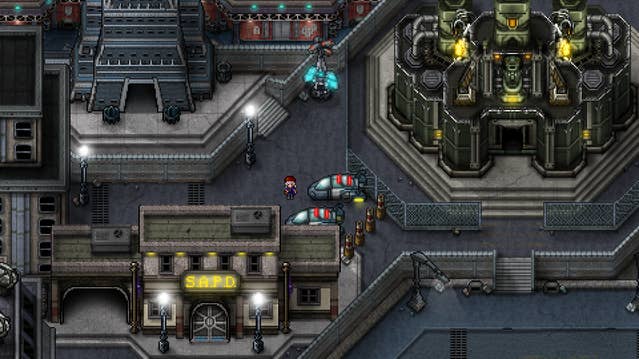
"In theory Nintendo should be able to leverage most of its first party talent on one device instead of balancing it between a console and handheld, which could help sell a lot more units than the Wii U, but that depends heavily on how they also handle the 3DS going forward," said Steinberg.
"For Nintendo, it's always about them delivering great first party support," says Yacht Club Games, reiterating Steinberg's sentiment. "So that's still up in the air! If they consistently deliver high quality new games at a frequent pace, the system is bound to be a success."
The developers' belief in the Switch extends to the prospects for their games on the platform. Yacht Club Games is all-in on the system and Tequila Works has been impressed with the fan reception since announcing the Switch version of RiME.
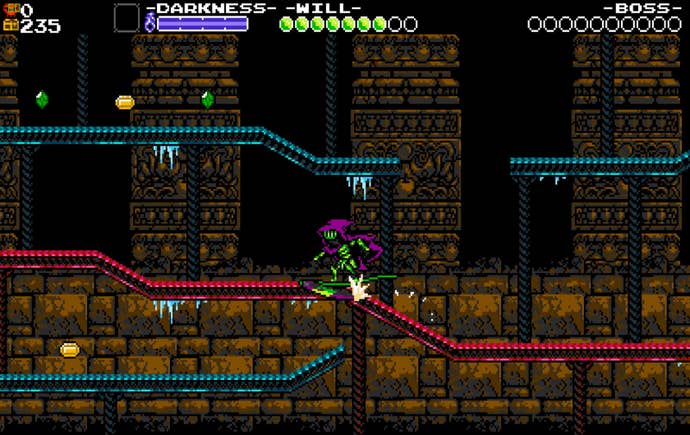
"We sure hope [it sells] well!" when I ask Yacht Club Games how well they expect Shovel Knight to sell on the Switch in comparison to other platforms. "Specter of Torment is much bigger than we've let fans know! It's really a blast, and we hope that makes it catch on!"
"I think our game could do more than well enough to justify porting to it- even if the Switch sells in WiiU quantities, I think the market of gamers who usually own Nintendo stuff would definitely be down for a Japanese-style RPG, especially given that the Switch is also portable," says Zeboyd's Steinberg.
"There's been a lot of interest and very positive reception since we announced RiME is coming to Switch," replies Tequila Works to the same question. "Right now we want to focus on finishing the game and making it the most polished experience we can, and as developers we try not worry about factors we can't control. But fingers crossed of course!"
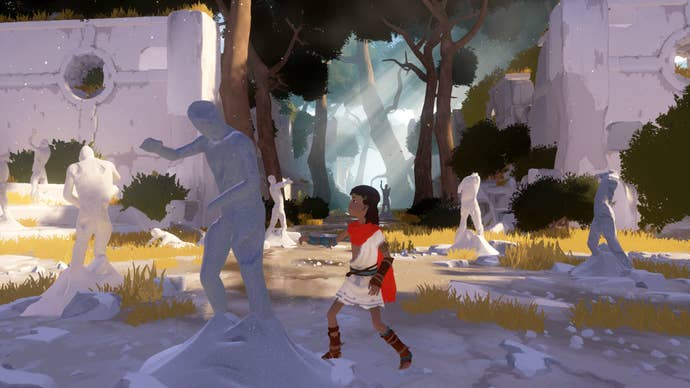
Finally, what about the future of the Switch? Even some of the major developers like EA and Ubisoft offered a few titles on the Wii U before abandoning the platform. It's not enough to have games at launch or in the first year; Nintendo needs solid, consistent support from developers to succeed. All three are currently working on titles, so there's not much thought given to the future right now.
"We would love to continue supporting the Switch in the future, but we currently have no games in development for it other than Shovel Knight," says Yacht Club.
Tequila Works is upbeat about a potential Switch exclusive though.
"We'd love to design a game specifically for Switch, to take advantage of its unique features. We think we are going to see some serious, weird awesomeness on Switch. But first, we'll finish RiME!" says Tequila Works.
Nintendo has a chance to carve out a unique space in the gaming market. The PlayStation Vita found meager success in offering a playground for mid-range Japanese and independent developers. With the Vita leaning on the end of its lifespan, the Switch has a chance to stand alone and define the premium portable market, while still offering a home experience. Nintendo needs to fortify the Switch's software foundation. All that will require is some reaching out on Nintendo's part.

